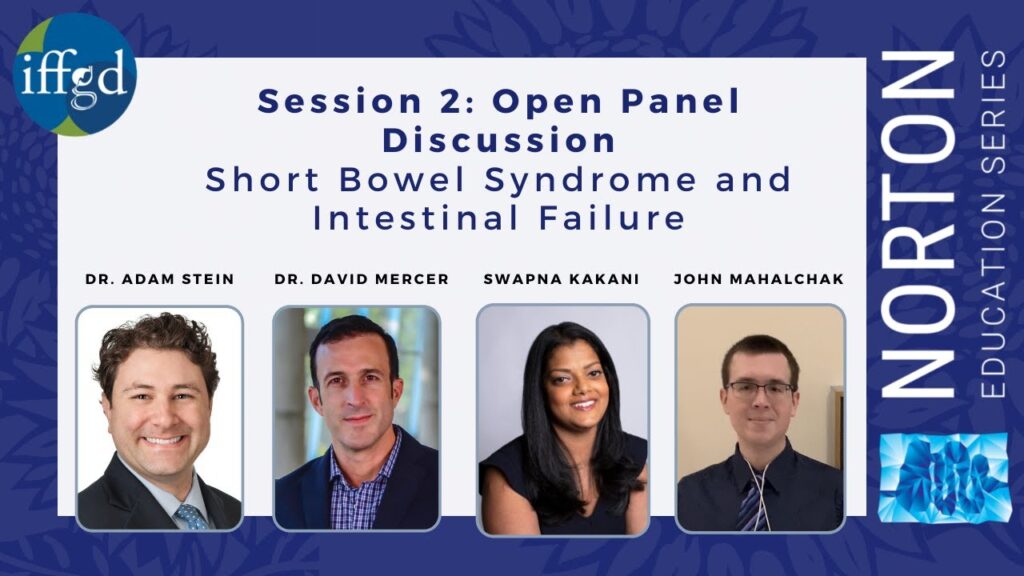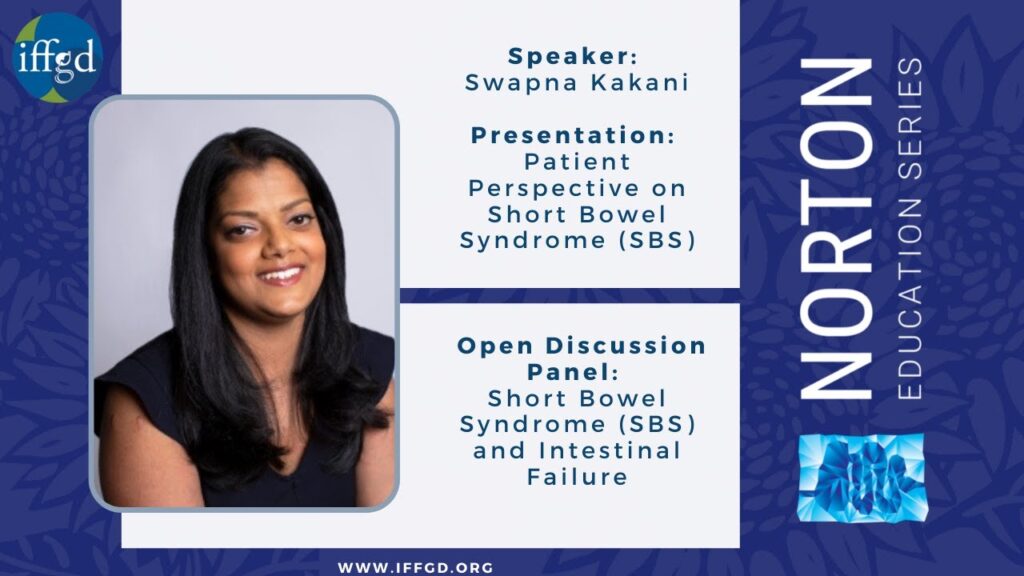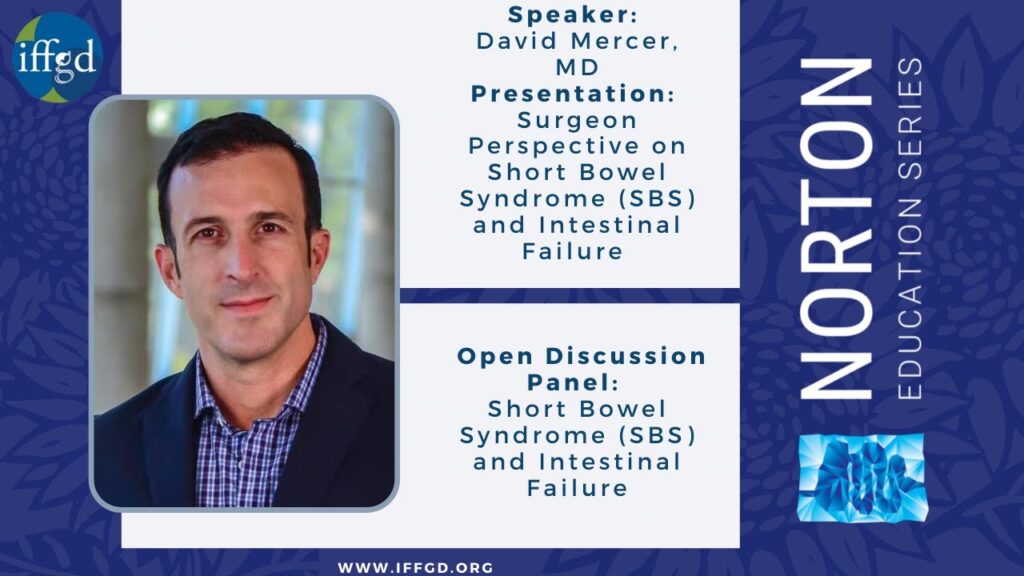296 – Short Bowel Syndrome and Intestinal Failure (SBS) / (IF)
Short Bowel Syndrome and Intestinal Failure Immediately following surgical resection of the small intestine (small bowel), the intestine begins to adapt on its own for the loss of absorptive surface area. It undergoes various phases to increase absorption and maintain balance. This process, known as adaptation, occurs through structural changes that increase surface area in […]
295 – Nutrition and Short Bowel Syndrome (SBS)
Nutrition and Short Bowel Syndrome (SBS) Nutrition strategies aim to prevent malnutrition and dehydration and maintain the best possible nutritionstatus. This may include oral eating, enteral nutrition, and parenteral nutrition. All methods may be used by patients in their homes. Nutrition support specialists (registered dietitians, nurses, healthcare providers) play a key role in helping manage […]
294- Managing and Treating Short Bowel Syndrome (SBS)
The goal of treating short bowel syndrome (SBS) is to promote adaptation and get the best use out of the existing bowel, maintain adequate nutritional status, and manage symptoms and complications.
293- How is Short Bowel Syndrome (SBS) Diagnosed?
How is Short Bowel Syndrome (SBS) Diagnosed Learn more
292- Complications of Short Bowel Syndrome (SBS)
What are some complications of short bowel syndrome? Short bowel syndrome is a condition characterized by malabsorption – difficulties absorbing both nutrients and fluids. Each year, many patients undergo surgical removal (resections) of large segments of their intestinal tract due to diseases, injuries, or congenital defects. Those patients can be left with too little intestinal […]
291- Stages of Short Bowel Syndrome (SBS)
What are the stages of short bowel syndrome? Immediately following the surgery to remove part of the bowel (surgical resection), the intestine begins to adapt on its own for the loss of absorptive surface area. It undergoes various phases to increase absorption and maintain balance (homeostasis). This process, known as adaptation, occurs through structural changes […]
290- What is Short Bowel Syndrome (SBS)?
All about Short Bowel Syndrome (SBS) Short bowel syndrome (SBS), also known as short gut, is broadly described as a condition in which nutrients are not properly absorbed because a large part of the small bowel is missing. Learn more.
409- Working With Your Healthcare Provider
Working with your healthcare provider can help make managing your condition easier A partnership between a patient and healthcare provider is essential when managing all chronic illnesses. Because the time spent with your healthcare provider is both limited and valuable, you can maximize it by following some simple guidelines before and after the visit. Learn […]
421- Personal Daily Diary for All GI Disorders
How can using a personal daily diary for symptoms help when monitoring your GI Disorder? Using a Personal Daily Symptom Diary for 2–4 weeks can help you learn more about how your body may be reacting to certain things in your life, such as diet, exercise, stress, and sleep. A Daily Diary aims to help […]
Short Bowel Syndrome and Intestinal Failure Panel Discussion: 2021 NES

Short Bowel Syndrome and Intestinal Failure: Patients and Providers This video is the panel discussion for 2021 Norton Education Series: Session 2: Short Bowel Syndrome and Intestinal Failure with healthcare providers – Dr. Adam Stein and Dr. David Mercer, patient speakers – Swapna Kakani and John Mahalchak, and moderator, Ceciel Rooker, IFFGD President. This video […]
Patient Perspective on Short Bowel Syndrome (SBS): 2021 NES

Patient Perspective on Short Bowel Syndrome – Presented by Swapna Kakani This video is a part of the 2021 Norton Education Series: 30th Anniversary Event which was broadcast on November 6 & 7, 2021. Included in Session 2: Short Bowel Syndrome (SBS) and Intestinal Failure, this presentation provides the patient perspective on living with Short […]
Surgeon Perspective on Short Bowel Syndrome (SBS) & Intestinal Failure: 2021 NES

Surgeon Perspective on Short Bowel Syndrome (SBS) & Intestinal Failure This video is a part of the 2021 Norton Education Series: 30th Anniversary Event which was broadcast on November 6 & 7, 2021. Warning: Some of the educational videos in this program contain graphic images of the human body related to medical procedures and for […]














